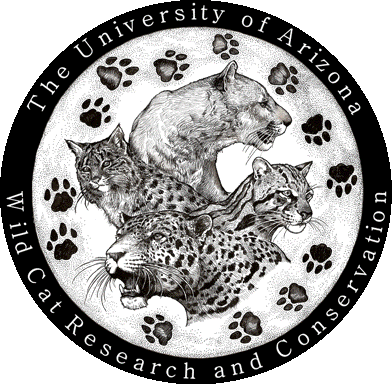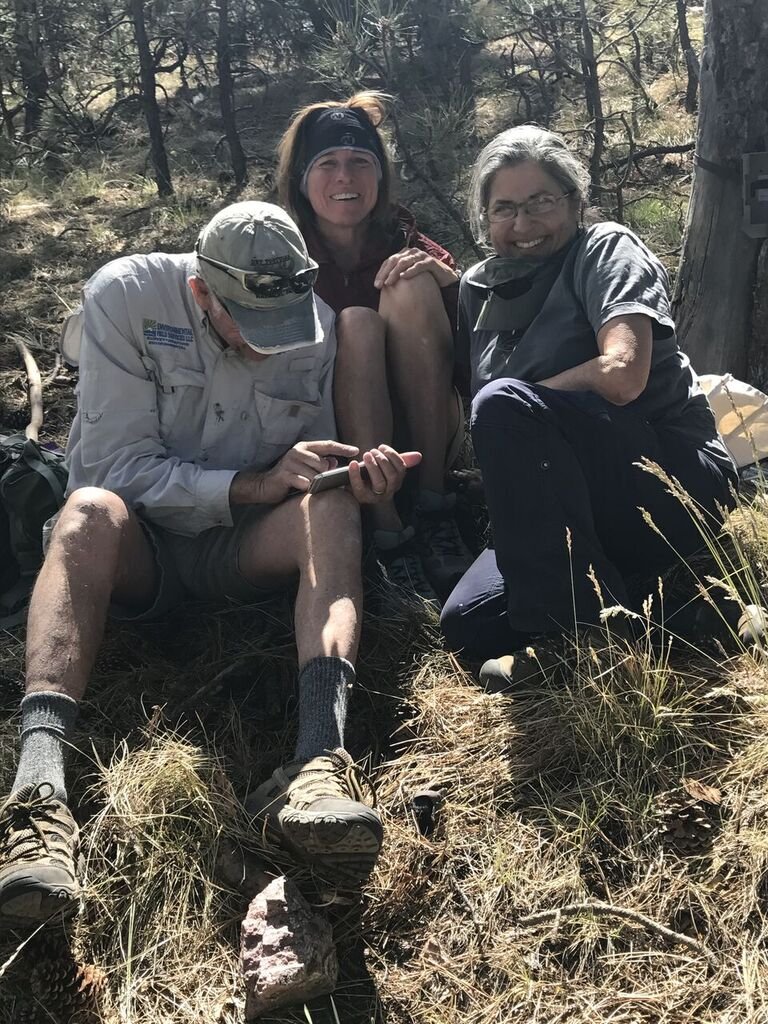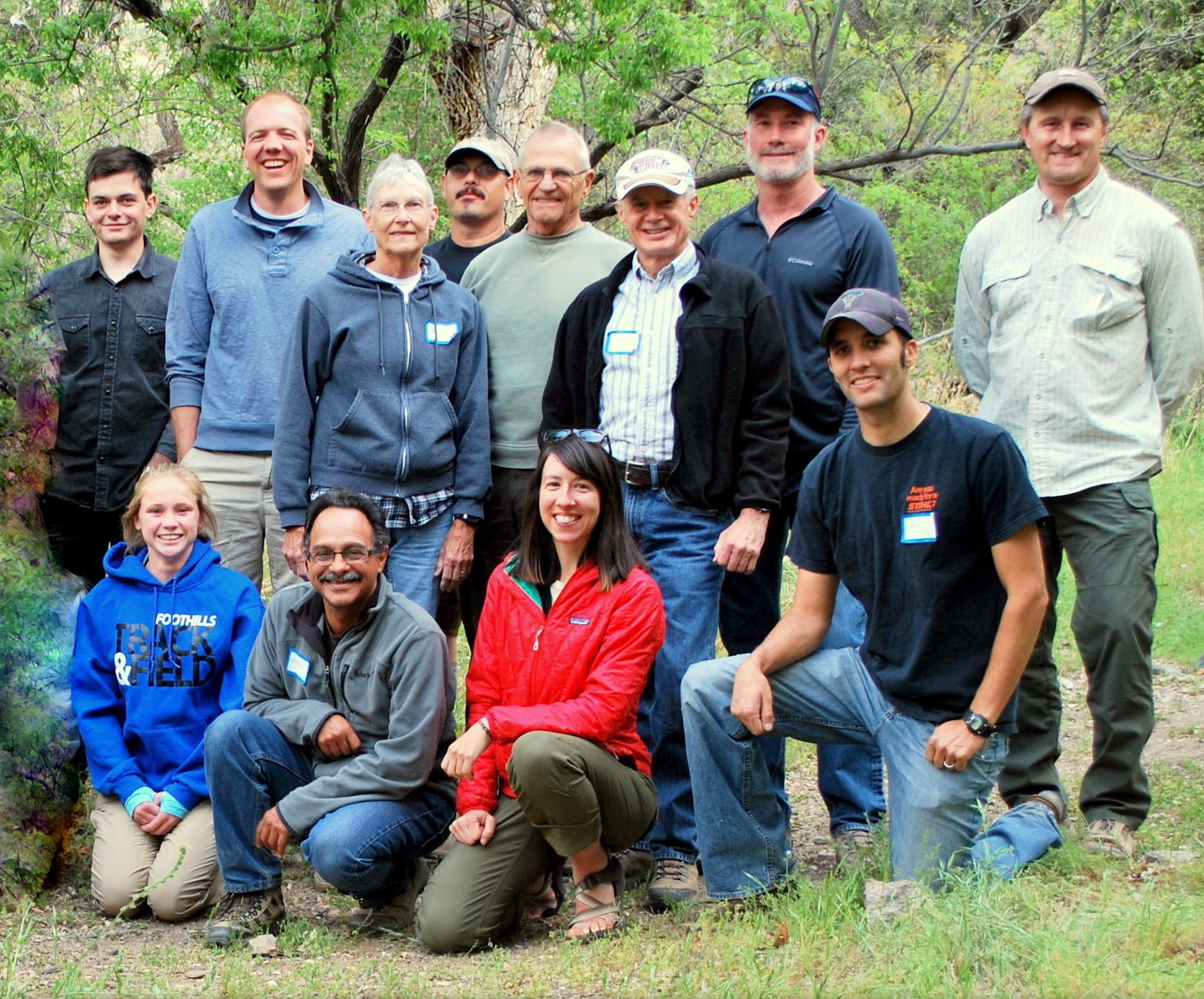Scientific Wildlife Monitoring
The UA Wild Cat Research and Conservation Center has led multiple trail camera wildlife monitoring projects since 2002. Our projects have included the long-term monitoring of all four wild cats in the southwestern United States, monitoring wildlife in Namibia, and monitoring fishing cats in India and Sri Lanka.
Non-invasive scientific camera monitoring.
Non-invasive scientific camera-trap monitoring is an effective method we use to monitor wildlife on the landscape. The data produced by camera monitoring is inclusive of predators, prey and all co-occurring species. Detecting and monitoring wildlife produces systematic observations (data), which can be analyzed with statistically sound methods to inform future management and conservation practices.
eDNA
eDNA is a non-invasive method we are utilizing to monitor biodiversity and rare species. The sampling is conducted by collecting and filtering water, sediment, or soil samples. DNA present in the filter is then extracted for DNA and analyses performed to obtain total species biodiversity of mammals/birds/herps from ephemeral ponds/pools/creeks or trails; or analyses is targeted to detect a single rare species present in the DNA. Results also help inform which water sources are being used more often by wildlife, and in which season, also important for conservation.
In the field….
Between January 2012 to present, our trail camera monitoring of Southwestern US camera sites have included detections of three jaguars and three ocelots, which have been photographed (and/or videoed or detected from scat) over 200 times. We have monitored 8 additional sensitive and/or threatened species, contributing to a large and informative wildlife dataset in Southwest Arizona. See our results section.
See our recent monitoring projects below…
Coronado National Forest FireScape Spotted Cat Monitoring
-
-
-
The University of Arizona is working with The U.S. Forest Service to monitor proposed fire treatment areas for the presence of jaguar and ocelot.
Southwest Border Resource Protection Program
-
-
National Park Service/ Southwest Border Resource Protection Program (SWBRPP)
-
Aid conservation and management of endangered jaguar and ocelot in Arizona; aid conservation of the ecosystems that the jaguar and ocelot depend, through monitoring of intact wildlife communities. Continue citizen science trail-camera monitoring for endangered jaguar, ocelot and other wildlife. Continue development of web based SPARC’d App for photo data sorting, archiving, and analyses for scientific research uses and conservation/management efforts.
Citizen Science and Education for Jaguar and Ocelot Conservation
-
-
-
The purpose of this project was to refine the development and implementation of the UA Citizen Science Program for Jaguar and Ocelot Monitoring. In order to accomplish this task, we worked closely to develop an educational program with methods to train, educate and evaluate Citizen Science learning occurring in both classroom and in the field.
Large Predator Study
-
-
-
UA- USFS Large Predator Study 2018-2020
The purpose of this agreement was to monitor for large predators including jaguar and ocelot in the Santa Rita Mountains, and in the area between the Santa Rita and the Whetstone Mountains. In addition to increasing knowledge regarding the movement of wildlife (including large predators) in the area, information collected during this investigation may identify a suitable wildlife crossing structure locations that could be constructed using Regional Transportation Authority funds dedicated for that purpose.
National Geographic Education and Outreach Photography Collaboration
-
-
National Geographic Collaboration with Steve Winter and Alex
-
The University of Arizona worked with National Geographic photographer, Steve Winter and biologist/photographer Alex Braczkowski to create outreach materials that included images.
-
-
University of Arizona Citizen Science IAA Project
Development and Implementation of a Citizen Science Program for Jaguar and Ocelot Monitoring
-
The purpose of this project was to develop, implement, and evaluate a citizen science program to survey and monitor for jaguars and ocelots within the U.S. portion of the Northwestern Recovery Unit for the jaguar. Our study was undertaken to address two important objectives: 1) To develop a protocol to train volunteer participants or citizen scientists with little or no background in biology or wildlife conservation that will increase their knowledge of jaguars, ocelots, and their conservation, as well as scientific data collection methods; 2) to train citizen scientists to be as in the pursuit of quality scientific data gathered and analyzed, identifying and documenting wildlife observations from camera data.
Development and Implementation of a Citizen Science Program for Jaguar and Ocelot Monitoring
Jaguar and Ocelot Survey and Monitoring Project in the US
-
-
-
Jaguar Surveying and Monitoring in the United States. (final report)
The University of Arizona (UA) established and implemented a non-invasive system for detecting and monitoring jaguars (Panthera onca) in southeastern Arizona and southwestern New Mexico for U.S. Fish and Wildlife Service contract F11PXO5778 awarded on 20 September 2011. UA team members on this study had diverse expertise that included extensive field experience specifically focused on wild cats (including jaguars), facilitation/human dimensions experience, spatial analysis and modeling focused on large carnivores, and conservation genetics.
Fishing Cat Conservancy
-
-
Fishing Cat Conservation Alliance
-
FishCat.org was founded by former PhD student Ashwin Naidu.
The goal at FishCat.org is to empower global communities with conservation jobs that restore ecosystems, and help solve deforestation, extinction, and climate change.
Ashwin is working with landowner partners to create FishCat Nature Reserves for sustainability. To get involved, reach out to FishCat.org.
Urban Bobcats and Mountain Lions: A Public Outreach, Education and Docent Program
-
-
Heritage Grant
-
A Public Outreach, Education and Docent Program (Arizona Game and Fish) 2012-2013











